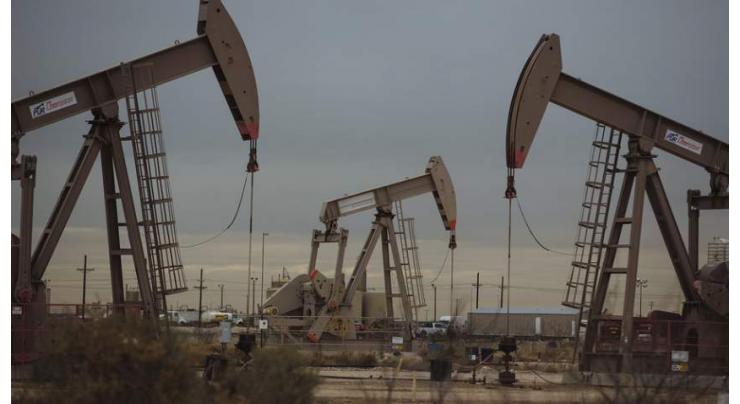
- Home
- Business
- News
- US 2020 Vote May Disrupt Oil Prices, Push OPEC+ to Pump More Oil - Equatorial Guinea
US 2020 Vote May Disrupt Oil Prices, Push OPEC+ To Pump More Oil - Equatorial Guinea
Umer Jamshaid Published September 11, 2019 | 12:32 PM

The outcome of the presidential election in the United States in 2020 might impact world oil prices, with any other winner but incumbent President Donald Trump likely to bring damaging regulations to the global industry and ultimately compelling the member states of the Organization of the Petroleum Exporting Countries (OPEC) and non-cartel producers to source more oil, Minister of Mines and Hydrocarbons of Equatorial Guinea, Gabriel Mbaga Obiang Lima, told Sputnik in an interview
ABU DHABI (UrduPoint News / Sputnik - 11th September, 2019) The outcome of the presidential election in the United States in 2020 might impact world oil prices, with any other winner but incumbent President Donald Trump likely to bring damaging regulations to the global industry and ultimately compelling the member states of the Organization of the Petroleum Exporting Countries (OPEC) and non-cartel producers to source more oil, Minister of Mines and Hydrocarbons of Equatorial Guinea, Gabriel Mbaga Obiang Lima, told Sputnik in an interview.
The United States will elect its 46th president on November 3 next year.
"We have to be very careful how the shale is going to be developing in 2020 and this is politics. The US election is coming next year. If the current president wins again it will be business as usual, because he will be supporting [the shale]. But if anybody but [incumbent President Donald] Trump wins, then there will be a lot of regulation and the entire industry will be finished,"� the minister said.
Lima stressed that a drop in US production would threaten economic stability.
"We will have to pump more [oil] to be able to keep [the price], rather than having a situation of $100-$120 per barrel, that is really not good for economies and we may go into recession. We are happy with the price of $60-$70 per barrel," Lima said.
In December, the OPEC+ deal signatories agreed to reduce overall production by 1.2 million barrels per day in the first half 2019 to stabilize oil prices. OPEC member states pledged to cut production by 800,000 barrels per day, while non-OPEC countries agreed to reduce it by 400,000 barrels per day. In July, the agreement was extended against the background of growing shale production in the United States.
Related Topics
Recent Stories

Venezuela shuts Ecuador diplomatic missions over raid

France and Germany will slow eurozone down: IMF

UN to launch $2.8 bn global appeal for Gaza, West Bank

COAS, Saudi FM discuss bilateral cooperation in various sectors

Big industry grows by 0.06 % in February 2024

PTI's plan to destroy national economy has failed: Senator Talal Chaudhry

Fire at Copenhagen landmark 'under control'

Hub rally on April 28

Saudi delegation's visit to usher in new era of close cooperation: Prime Ministe ..

Erdogan says Netanyahu to blame for Iran's attack on Israel

Human traffickers gang busted in Mirpurkhas, 2 girls rescued

Man killed in Attock
More Stories From Business
-
Pak-Saudi Arabia agreed to expand bilateral economic,trade ties
3 hours ago -

France and Germany will slow eurozone down: IMF
4 hours ago -

Big industry grows by 0.06 % in February 2024
4 hours ago -

Ch. Shafay for strict monitoring of anti-hoarding activities
5 hours ago -

Anxiety over Middle East hits global stocks
6 hours ago -

Finance Minister appreciates IMF, WB support extended to Pakistan
6 hours ago
-

Finance Minister brief IFC on economic reforms in Pakistan
7 hours ago -

Anxiety over Middle East hits global stocks
7 hours ago -

PMYP, SBP deliberate on expanding youth loan scheme
7 hours ago -

FDE announces results of class 5 & 8 centralized exams 2023-24
7 hours ago -

CCP issues policy note disclosure on ‘Cement Packaging'
7 hours ago -

LCCI identifies key issues hampering economic growth
7 hours ago
















